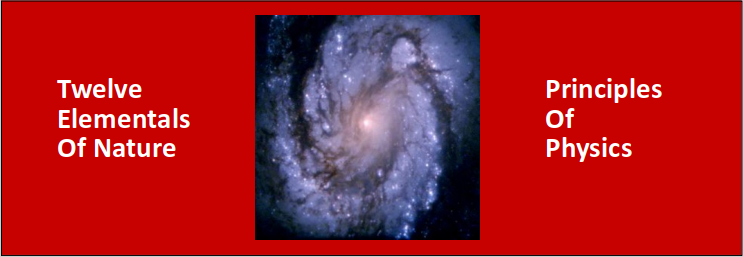Twelve Elementals of Nature
Epicurus held that the faculties given to us by Nature are sufficient for our use in learning enough about Nature to live happily. Happy living requires that we understand enough about how the universe operates to reach confident conclusions about several fundamental issues, such as whether the universe was created by gods whom we should fear, and whether we have eternal souls that survive death to face punishment or reward.
Through his study of the universe Epicurus reached twelve elementary conclusions of particular importance. He did not consider these twelve “elementals” to be speculation, but rather to be provable through firm evidence and true reasoning. The three categories of faculties Nature gave us to perceive this evidence are (1) our five senses, (2) our faculty of perceiving “anticipations,” and (3) our faculty of “feeling” pleasure and pain. True reasoning requires that we always search out and hold to be true those conclusions which are supported by clear and convincing evidence, and that we never hold to be true any conclusions which are not supported by clear and convincing evidence.
Because our faculties report their sensations exactly as they perceive them, with no mixture of false opinion, we must always honor what they report to us. Even when they report information that is distorted by distance or other obstacle, their report is honorable, and no evidence is ever to be disregarded as worthless. Error occurs only in the mind, and where evidence about a matter is insufficient to give rise to a firm opinion, we must wait before labelling any opinion about the matter as true or false.
Thus we have no need to rely on any gods, priests, or supernatural claims four our understanding of Nature. Unlike false claims to knowledge, what our faculties give us is “true” and not adulterated by false opinion. Only if we use our faculties properly we can be confident in our conclusions. And we can only use our faculties properly if we understand the process by which they operate.
Epicurus concluded that the following twelve aspects of nature are crucial to understanding how both Nature, and our faculties, operate:
- Matter is uncreatable.
- Matter is indestructible.
- The universe consists of solid bodies and void.
- Solid bodies are either compounds or simple.
- The multitude of atoms is infinite.
- The void is infinite in extent.
- The atoms are always in motion.
- The speed of atomic motion is uniform.
- Motion is linear in space, vibratory in compounds.
- Atoms are capable of swerving slightly at any point in space or time.
- Atoms are characterized by three qualities, weight, shape and size.
- The number of the different shapes is not infinite, merely innumerable.
The method by which these elemental observations were established can be found in Epicurus’ Letter to Herodotus and Lucretius’ De Rerum Natura. They are to be proved by observation and not to be accepted on faith or on the authority of Epicurus.
The basic point is that for us to have confidence in the conclusions of reason, those conclusions must be validated through some combination of the five senses, the faculty of anticipations, and the faculty of pleasure and pain. Authorized Doctrines 22-26 describe essential aspects of this process. Speculation base on “logic” which is not firmly supported by evidence from one or all of the three faculties is certain to lead to error.
This list of twelve elementals given above is that which has been reconstructed by Norman DeWitt in his book Epicurus and His Philosophy. A similar list has also been prepared by Professor Diskin Clay in his work Paradosis and Survival.
Modern discoveries in physics would call for the use of new terms in the place of “matter” and “atoms,” which were coined by the ancient Greeks long before men had means to look inside what we today call an atom. But it is a mistake to presume that Epicurus’ views are wrong simply because we have new terms to describe the smallest constituents of the universe. Epicurus was very clear in stating that his essential position was that, at some fundamental level, the universe is composed of elements that are indestructible and indivisible.
It is immaterial whether this fundamental indivisible level is best described as “molecular,” or “atomic,” or “subatomic,” or by any other name which might be given to observable phenomena. The essential point established by the “true reasoning” method of Epicurus is that at some point an indivisible level exists. No matter what name we may give to the phenomena at that level, any phenomena which is observable to the senses exists as part of our own universe, and was neither created by, nor is subject to, any supernatural forces.

